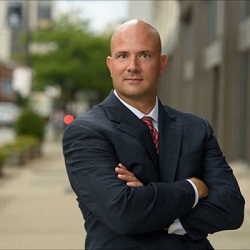Transcripts

 Erik: MacroVoices Episode 82 Alpha was recorded on September 28th, 2017. I’m Erik Townsend.
Erik: MacroVoices Episode 82 Alpha was recorded on September 28th, 2017. I’m Erik Townsend.
Today’s feature interview with Alhambra Partners CIO Jeffrey Snider was pre-recorded back in July of 2017 as Part 2 of our Eurodollar University project. There’s a slide deck to accompany this interview, and we recommend that you download it before listening as we’ll be referring to the charts and graphs it contains throughout this program.
Registered users at macrovoices.com will find the download link in their Research Roundup email. If you’re not yet registered, go to www.macrovoices.com and look for instructions to register and get the download, next to Jeffrey Snider’s photo on our home page.
This four-part series came about after listeners to the MacroVoices weekly podcast asked for more in-depth coverage on the Eurodollar system. In Part 1 we discussed how the Eurodollar system came about, how Milton Friedman demonstrated in a series of articles that fully $30 billion in new US dollar money supply was created in the Eurodollar system by the end of the 1960s, and how this occurred at the stroke of a bookkeeper’s pen without a single penny of actual cash issued by the Treasury or a single ounce of gold bullion to back this $30 billion of new money supply.
So, without further ado, let’s jump right back in where we left off. Here is Alhambra Partners CIO Jeffrey Snider.
Jeff: One of the things that we have to be aware of is that the word Eurodollar, as I said before, is not a technically precise term. At least, the way I use it, it’s not a technically precise term. I use it as a catchall to describe what is, essentially, a radical monetary evolution away from the traditional format that was based on deposits of dollars toward the more indescribable and ill-defined interbank market of these bookkeepers’ pen ledger balances moving back and forth.
The wholesale part of it is just as important as the offshore part of it. I think we want to describe in a little more detail what we mean by wholesale finance.
 Erik: Joining me now is Morgan Creek founder and CIO, Mark Yusko. Mark sent us a fantastic 146 page slide deck to accompany today’s interview. Now obviously we’re not going to have time to touch on every single slide, but I strongly encourage you to. So, please, download the slide deck and peruse the whole thing. Registered users will find the download link in your Research Roundup email.
Erik: Joining me now is Morgan Creek founder and CIO, Mark Yusko. Mark sent us a fantastic 146 page slide deck to accompany today’s interview. Now obviously we’re not going to have time to touch on every single slide, but I strongly encourage you to. So, please, download the slide deck and peruse the whole thing. Registered users will find the download link in your Research Roundup email.
If you’re not registered yet, just go to macrovoices.com and look for the red “Looking for the Downloads?” button above Mark Yusko’ s photo on our home page.
Mark, I can’t believe it has been almost a year since we had you on the show last October. And, at that time, all the smart guys that we had on the program were super- uber-bullish on the US dollar on a secular level. Then you came along and you proclaimed that the dollar was topping. You held a bearish view – not just as a trade, but you articulated a secular bearish view about the dollar gradually weakening over a long time horizon as its hegemony in the global financial system comes into serious question.
Now, as of the time of our last interview, holding a bearish view on the dollar was extremely unfashionable in macro circles. A year later, we’re about 10% lower on the DXY. So if there’s anything I’ve learned in this business, Mark, it’s that you don’t want to pay attention to the guy with the most eloquent explanation of what already happened. You want to pay attention to the guy who got it right when it was unpopular to be right. And that clearly is you in this case.
So, for the benefit of our newer listeners who may not remember that interview, let’s start from the beginning. Please explain your view. How did you know a year ago that the dollar was topping, and what you saw was not just a pullback or something but a secular change in direction.
What is this all about? And what can we expect from here for the US dollar?
 Please note this was transcribed to best of the ability of the transcriber and may have minor errors. Please refer to the podcast itself to clarify anything.
Please note this was transcribed to best of the ability of the transcriber and may have minor errors. Please refer to the podcast itself to clarify anything.
Erik: Joining me now is Hugh Hendry, manager of the Eclectica hedge fund. Hugh, last time you were on the program, several people on Wall Street were starting to say that the market was overdue for a correction or an outright bear market. But you very confidently assured us that things were better than feared, and, so far, you’ve been absolutely right in that call.
But now the chorus of doomsayers has grown much larger. Jeff Gundlach has been extremely outspoken, saying he’s going to make at least 400% on his S&P puts. Quite a few pundits have suggested that the business cycle is long overdue for a recession. Analogies to 2000 and 2007 are everywhere you look. Even Goldman Sachs Chief, Lloyd Blankfein, recently commented publicly that asset prices have gone up too much for too long.
So, Hugh, is the growing chorus of bears about to be proven right? Or do you think that this global economy still has room to grow, and markets have room to march even higher?
Hugh: Well, I guess it won’t surprise many that I probably find myself in what feels like a little bit – it’s uncomfortable from the vantage point of managing a macro portfolio to say that I still believe the system is healing. And, yes, I certainly accept that valuations are high, but I can’t really see anything to get in the way (if you will). Now, you mentioned corrections. One can never really dismiss that they are an ever-present with us in financial markets. But, in terms of calling an end to proceedings and looking for a correction greater than 20%, drawdowns in S&P are rare like hen’s teeth. But something severe and something of the order of what we saw, of course, in 2008, and eight years previously, I want to say I just don’t see the setup for that situation presently.
 Please note this was transcribed to best of the ability of the transcriber and may have minor errors. Please refer to the podcast itself to clarify anything.
Please note this was transcribed to best of the ability of the transcriber and may have minor errors. Please refer to the podcast itself to clarify anything.
Erik: We've had so many secular dollar bulls on the program that you, our listeners, have asked us to find a credible secular dollar bear to present a contrasting view. Joining me now is Luke Gromen, founder of Forest for the Trees. And, folks, I think you're going to find that Luke's very bearish secular dollar arguments are as credible as they come.
Luke sent us a fantastic 45-page books of graphs and charts to support this interview, which you're definitely not going to want to miss. Registered users at macrovoices.com will find the download link in your Research Roundup email. If you're not registered yet, just go to macrovoices.com and click on the red button above Luke's photo that says, "Looking for the download."
Luke, before we dive into your chart book, let's start with the high-level executive summary. Why are you bearish on the US dollar? Not just right now, but as a secular trend.
Luke: Thanks for having me on, Erik. I've been excited to do this interview with you. Why we're bearish on the dollar is because a key driver to the dollar bull market that began in earnest in 3Q14 has been accelerating de-dollarization trends. In other words, the dollar began rising so fast in 3Q14 because it began to lose share of global trade at an accelerating rate in 3Q14, driven by moves led by China and Russia.
Now, ironically, what is in the long run the most fundamentally bearish development for the dollar —loss of share of global trade — was in the near term extremely bullish for the dollar, as were the reduced flow of dollars over a large and persistent bid for dollars from offshore dollar-denominated debt — created what was, in effect, a massive dollar short squeeze that began in earnest in 3Q14. However, as we noted, dollar loss of share is a long-term massively bearish development for the dollar.
And so, the only questions were always, number one, how high would the dollar go? And two, when will the tipping point be reached, where the dollar's share loss in global trade goes from being dollar bullish to dollar bearish?
And, what most dollar bulls don't realize, in our opinion, is that the tipping point was already reached a year ago in 3Q16 when the US Congressional Budget Officer (CBO) said that the US federal deficit as a percent of GDP was going to widen year over year for the first time since 2009. This is a critically important announcement that virtually every analyst totally missed.
You can see why this is so important if you look at Slide 29 in the packet. Since 1969, the US federal deficit as a percent of GDP has peaked and fallen year over year only seven times. Six of those prior peaks were followed by US recessions within 12 to 18 months. The only time the US did not experience a recession, the dollar was significantly devalued at the Plaza Accord in the mid-1980s.
And so last year, in 3Q16, the US CBO gave us the heads-up as an indicator that, for the past 50 years had indicated with 100% accuracy either a US recession or a major dollar devaluation was coming, had just been tripped. And, right on cue (as you can see in Slide 12) in late 2016, US trailing 12-month treasury receipts, or tax receipts, fell year over year for the first time since the recession — something that had never happened outside a US recession — in data on tax receipts that stretches back to at least 1980.
And so, in a nutshell, what the widening in US federal deficits and the ensuing year over year drop in US tax receipts meant was that, for the first time in ours or any dollar bull's career, the US fiscal situation “broke” in response to the stronger dollar and rising rates before a major emerging market crisis broke out.
This has led to a kind of unique situation where a core tenet of the dollar bull's belief system is the dollar will keep rising because the Fed is hiking rates and the US economy's fiscal situation has never broken before emerging market nations or currencies have suffered a crisis. But the data objectively shows the US fiscal situation has already broken before the emerging markets did.
It reminds me a bit of the situation in housing. When you had a core tenet of the housing bull case it was US home prices have never fallen nationally, when they'd already begun to do so.
And so, to directly answer your question, once we saw that widening in the US federal deficit as a percent of GDP for the first time since 2009, we began to become a bit nervous about what was at that point a strong dollar bull viewpoint that we were holding. And then once Trump became elected president, having run on what was at its core a weak dollar platform, and then he and his administration nearly immediately began making extremely dollar-bearish comments, we switched our position from dollar bull to dollar bear.

 Please note this was transcribed to best of the ability of the transcriber and may have minor errors. Please refer to the podcast itself to clarify anything.
Please note this was transcribed to best of the ability of the transcriber and may have minor errors. Please refer to the podcast itself to clarify anything.
Erik: Welcome to Part 1 of MacroVoices Eurodollar University with Alhambra Partners CIO Jeffrey Snider. I’m your host, Erik Townsend. There’s a slide deck to accompany this podcast and we highly recommend that you download it before listening as we’ll be referring to the charts and graphs that it contains throughout this program.
This four-part series came about after listeners to the MacroVoices weekly podcast asked for more in-depth coverage of the Eurodollar system. We’d interviewed Jeffrey Snider from Alhambra Partners several times, and each time Jeffrey had myriad fascinating observations about the signals that he was seeing in the Eurodollars futures market, which enabled him to both make observations and predictions about what was occurring in the global economy.
Our listeners loved Jeff’s interviews. But even the finance professionals in our audience told us they needed a primer on the Eurodollar system, its origins, and its history, in order to be able to better appreciate and understand Jeffrey’s insights about what the Eurodollar market is telling us about today’s economy. So we decided to do a full hour-long show just focusing on the history and structure of the Eurodollar system. But before we knew it, that turned into a four-part series. This is the first installment in that series. So, without further ado, joining me now is Alhambra Partners CIO, Jeffrey Snider.
Jeff, thanks so much for coming back and doing this Eurodollar University with us. Let’s go ahead and look at your slide deck, starting I guess with Slide 3: How Does A Dollar Become A Dollar? What’s on your mind here?
Jeff: Well, first of all, thanks, Erik and Patrick, for having me back and giving me the opportunity to explain this. One of the most common questions I get is to go into a deeper—whether explanation or even just to detail how these things actually work. You know, the things that we’re taking about is modern money supply and modern money in general. It’s a global system that, quite frankly, nobody seems to have much of a handle on because it’s been languishing in orthodox economics for decades now. And, really, a lot of it takes place in the shadows, far away from where we can actually directly observe what is going on in the monetary system.
So an opportunity to actually explain some of the intricacies and the arcane nature of the way these things actually work is a tremendous opportunity for me, and I think it’ll help a lot of people get a better understanding of how we got to where we are and why we’re stuck in this state.
MACRO VOICES is presented for informational and entertainment purposes only. The information presented in MACRO VOICES should NOT be construed as investment advice. Always consult a licensed investment professional before making important investment decisions. The opinions expressed on MACRO VOICES are those of the participants. MACRO VOICES, its producers, and hosts Erik Townsend and Patrick Ceresna shall NOT be liable for losses resulting from investment decisions based on information or viewpoints presented on MACRO VOICES.
